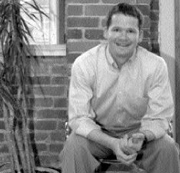“WHAT THE HELL are all those Seattle Democrats doing down there?” fumes Aaron Ostrom, head of 1000 Friends of Washington, an environmental group concerned with transportation and land use. “That whole crowd is getting rolled by three Republicans.”
Ostrom and other green leaders are furious about the state Legislature’s $7.7 billion boondoggle—the state transportation plan. They say the plan is a highway-building program that does little to help transportation problems and does a lot to degrade the environment. And they believe a few Republicans led by state Sen. Dan McDonald, R-Bellevue, are responsible.
For months, we’ve been hearing the revving of engines as Boeing’s Alan Mulally and other business leaders, the editorial pages of the dailies, and our political leaders warn that Washington has a transportation crisis on its hands that will force businesses to flee the state, our recession to worsen, and commuters to go insane.
Now the state Legislature (Democrats control the House, the Senate, and the governor’s mansion) has passed a complicated set of linked proposals—both a state and a regional plan—that will ask voters to pay billions of dollars in new taxes mostly to build new highways and roads. The state plan, which is much more clearly defined at the moment, asks voters to spend $7.7 billion on transportation, 85 percent on roads and highways.
“It’s not that you should never widen a highway,” says Ostrom. “But if that’s the main horse you are riding, you just won’t ever succeed. If you look at the metropolitan areas that have a smaller percentage of their population stuck in traffic, it’s those that invest in choices.” Ostrom and his allies at the Transportation Choices Coalition and the local Sierra Club believe that money invested in buses, passenger-only ferries, carpools, vanpools, work-at-home programs, light rail, monorail, and bike lanes will yield better results than simply laying pavement. The key reason is something transportation wonks call “latent demand.”
In a large metropolitan area like Greater Seattle, there are lots and lots and lots of cars. But people don’t drive their cars at certain times on certain roads because there’s too much congestion. Everyone does their private calculus about how hard it is to get from point A to point B. If it’s really nasty, then some people use alternatives, go at another time, or don’t go at all. Once the state builds more lanes of freeway, traffic flow improves a little bit, then that calculus changes and you think, “Hey, I could go get those Krispy Kremes right now, even though it’s 4 p.m., because traffic isn’t as bad as it used to be.” The lanes fill back up.
It’s not an argument that everyone buys. The most important guy who ain’t biting is McDonald. Bellevue’s champion, McDonald looks and sounds—complete with a genial aw-shucks style—like Jimmy Stewart, but he negotiates like Attila the Hun. McDonald, who just announced he will not seek re-election, contends that the Legislature has done a lot for alternatives in recent years when lawmakers created Sound Transit, and look where that got us. Now it’s time to lay some pavement. He characterizes the current plan as “a balanced approach.” He argues, “You can’t build your way out, but you can’t transit your way out, either. Transit is stuck on the highways just like everybody else.”
McDonald’s pet project is adding lanes to Interstate 405 from Tukwila to Lynnwood. By itself, I-405 is, by some reckonings, a $7.5 billion project. I-405 gets 23 percent, $1.77 billion, of the proposed new state transportation taxes. Ostrom thinks I-405’s expansion accomplishes little more than more sprawl, more air pollution, the loss of around 1,400 properties, and Bellevueites sitting in 18 lanes of traffic instead of 10.
Moreover, Ostrom thinks McDonald has missed one central point: Voters don’t want just more highways. “If you look at the polls,” says Ostrom, “what sells is a balanced approach.” Ostrom predicts that this fall when the voters are asked to support billions in new taxes for more pavement, they will say no. Maybe then politicians will park their SUVs and consider alternatives.








